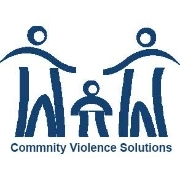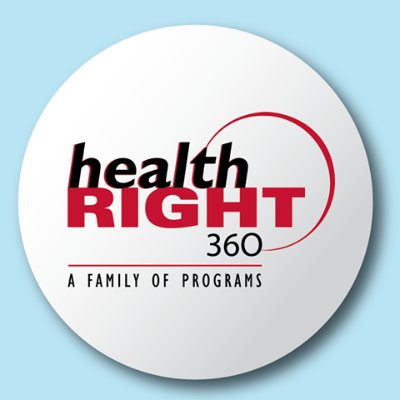About Job
- 6% additional pay for overnight (NOC) shift from 11 pm to 7 am
- 4.5% additional pay for evening shift from 5:30 pm to 10:59 pm
- 4.5% additional pay for weekend shifts from 12:01 am on Saturday thru 11:59pm on Sunday
- Medical benefits –Kaiser--ranging from $0 Deductible Plan with $15 Copay to $,3200 Deductible Plan with Health Savings Account. Sutter Health plans are also available from $0 Deductible Plan to $2,500 Deductible Plan.
- Dental benefits –Guardian: 1 dental HMO and 2 PPOs
- Vision benefits – 2 options from Guardian VSP: a standard vision plan and an
- Facilitate one-on-one sessions and groups through substance use and mental health counseling processes that help develop and strengthen building of relapse prevention, coping and independent living skills, harm reduction, and develop curriculums.
- Work with clients’ families and educate them on substance use and mental health rehabilitation processes and related issues to enable successful recovery transitions and development of healthy support systems.
- In outpatient programs, engage clients for evaluation to engender trust by performing visits to private homes, locked hospital or jail facilities, community shelters, and medical facilities.
- Help prepare and assist clients and their families with client social integration into community life, housing, school, employment, and other life-sustaining, recovery and independent living skills.
- Provide linkage assistance to clients in obtaining a primary care physician, coordinating care with medical doctors, and assisting with medical issues, schedules, appointments, and transportation.
- Coordinate care with internal/outside mental health professionals and programs.
- Assist in budgeting and financial planning; address health and safety issues and how to respond to common emergencies and relapse triggers.
- Facilitate client insurance benefits to expedite treatment and ensure timely payment to representative payees.
- Provide service to clients and clients’ families in linkage with professional and community resources.
- Interface directly with clients and provide counseling, particularly during times of conflict, relapse and crisis intervention.
- Complete the substance use, clinical records and other documentation, processes, and procedures that enable clients to receive these services in accordance with Agency, payor and regulatory requirements, utilizing paper or computer technology.*
- Develop and implement individual service and treatment plans.
- Perform clinical and administrative admissions and discharge paperwork and procedures.
- Assess clients for admission, benefit status, and clinical appropriateness for admittance; coordinate admittance details; communicate with referral sources to complete admittance papers; complete all required agency, County and regulatory forms for client admission.
- Enter and maintain up-to-date clinical documentation for each client file, including case notes for each client per Agency standards.
- Track due dates for all paperwork to ensure quality standards are met and accurate and timely billings can be issued.
- Perform general office work, including electronic and telephonic communications and processing of timecards.
- Attend and participate in staff, program, agency and community meetings and training.
- Provide transportation in personal or agency vehicles, including, but not limited to, the transport of clients and or program supplies, for agency business.
- May provide on-call floor coverage, as needed.
- Provide on-call coverage for non-standard work hours, as needed.
- Interface with staff, clients, and visitors, as conditions require and in an unobtrusive manner.*
- Ensure compliance with applicable health and safety or other regulatory requirements.*
- Ensure work area is clean and well kept.
- Active and current Registration or certification with a certifying organization approved by DHCS to provide substance use treatment such as CADC I, CADC II or CADCIII. (E)
- Demonstrated ability to:
- Work independently and in a small team environment. (E)
- Engage and communicate effectively with others in both verbal and written English. (E)
- Monitor and support developmental growth and the recovery process. (E)
- Manage multiple tasks and demands. (E)
- Employ tact and diplomacy, exercise good judgment, and act calmly in emergency situations. (E)
- Work from a strengths-based, harm-reduction, social rehabilitation model. (E)
- Work effectively with persons of different value systems, ethnicity, cultural backgrounds, language capabilities and disabilities. (E)
- Work collaboratively with individuals identified as those with substance use concerns, serious mental illness who meet the following criteria: histories of hospitalization, institutionalization, including with the criminal justice system, substance abuse, low engagement in medication treatment, and difficulty in participating in structured activities and living independently. (E)
- Work with populations identified as high risk and/or considered under-represented in the County Mental Health system with multiple barriers. (E)
- Exhibit exemplary customer service, compassion, and care in the execution of all duties and interactions. (E)
- Demonstrated ability to work with participants who:
- May also have histories of assaultive behavior. (E)
- May have resided in long term care facilities for extended periods. (E)
- May have patterns of service that relied almost exclusively on emergency and institutional care. (E)
- May have cognitive difficulties and medical co-morbidities and are considered medically fragile; may also be developmentally disabled. (E)
- May have long-term patterns of homelessness and criminal justice involvement. (E)
- Knowledge of:
- And demonstrated ability to administer American Society of Addiction Medicine (ASAM) and DMS assessment criteria to identify substance use issues and concerns. (E)
- Clinical techniques for assessment, treatment, harm reduction strategies and rehabilitation of people with psychological disorders and associated medications; problem resolution and conflict resolution techniques. (E)
- And demonstrated ability to conduct and facilitate psychosocial and psychoeducation groups. (E)
- Community resources, including those required to meet the non-mental health needs of the target population. (E)
- Drug Medi-Cal Organized Delivery System (DMC-ODS), Mental Health Services Act (MHSA) and Wellness Recovery Action Plan (WRAP). (D)
- Motivational Interviewing, Stages of Change, Cognitive Behavioral Therapy (CBT) and Diagnostic and Statistical Manual of Mental Disorders (DSM) for Substance Related and Addictive Disorders. (E)
- Special Requirements: Must be able to meet and receive a criminal records clearance, as required by Title XXII, other licensing regulations and Momentum practices. (E)
- Proven proficiency in typing—minimum 40 net wpm; computer literacy, including Internet search and a basic proficiency level in Microsoft Office applications and Windows-based databases; (E) familiarity with UNIX-based databases. (D)
- A valid California Driver License, with access to a reliable vehicle or for driving a company vehicle, current proof of auto liability insurance, and a clean DMV record, with eligibility for a Class B license. (E)
- Physical requirements needed to perform the essential functions of this job, with or without accommodation:
- Standing, walking, grasping, finger flexion, moving/lifting/carrying objects up to 40 lbs., bending, stooping, crouching, kneeling, withstanding repetitive motion, and reaching repeatedly are required constantly (over 2/3 of the workday). (E)
- Hearing and talking on telephone and in person is required occasionally (under 1/3 of workday); (E)
- Balancing, climbing and crawling may be required occasionally. (E)
- Physically able to assist clients and/or staff in the evacuation of program facilities in emergency situations. (E)
Professional Field
 Counseling
Counseling Other Behavioral, Mental, or Healthcare Field
Other Behavioral, Mental, or Healthcare FieldPatient Focus
Diagnoses
Avoidant Personality Disorder
Substance-Related and Addictive Disorders
Issues
Addiction
Medication Management
Minority Health
News, Politics, and Society
Therapeutic Approach
Methodologies
ECT
Pharmacotherapy
Modalities
Couples
Individuals
Practice Specifics
Populations
Individuals with Addiction Issues
Inmates
Aviation/Transportation
Racial Justice Allied
Settings
In-patient Non-Psychiatric
In-patient Psychiatric
Milieu
Partial Hospitalization (PHP)
Private Practice
Research Facilities/Labs/Clinical Trials
Residential Treatment Facilities (RTC)
Substance Abuse Treatment Facilities
Home Health/In-home
Corrections
Forensic
Sign up for job alertsGet daily alerts for jobs relevant to you, sent to your inbox












